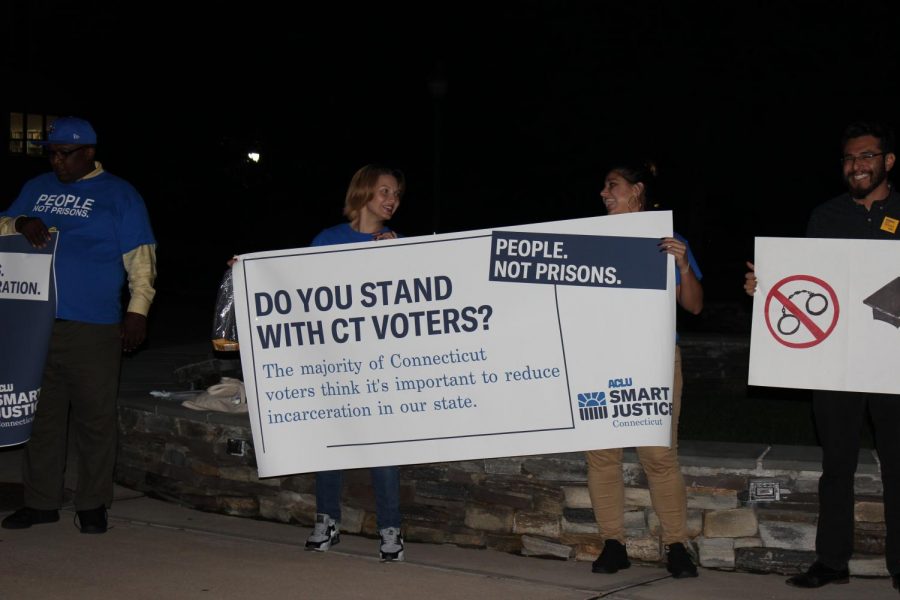The Correlation Between Over Policing And Mass Incarceration
October 14, 2018
In review of the criminal justice system, the argument can be made that the institution of police brutality is directly correlated with the institution of mass incarceration.
Tracing back to its origin, the first police force was created in Boston in 1838 as a municipal police force that had a small staff of men designated to patrol certain districts of each state. The intention of creating a municipal police force was for the purpose of upholding laws and regulation of a civil society.
Police forces that were created in the South followed a similar method, yet differed in agenda and operation. The first recognized police force in the South was deemed the “Slave Patrol,” and had served the purpose to chase down runaway slaves, capture them and return them to their owners. In further operation of the Slave Patrol, police were ordered to construct forms of organized terror against slaves in the prevention of slave revolts and uprisings.
As a result of the implementation of the Thirteenth Amendment, which stated, “Neither slavery nor involuntary servitude, except as a punishment for crime whereof the party shall have been duly convicted, shall exist within the United States, or any place subject to their jurisdiction,” had freed blacks across the recognized states of the Americas.
As a consequence of the Constitution, the U.S. was left without an inexpensive labor system to further utilize in industrializing their economy.
In the manipulation of the constitutional language, freed blacks were subjected to further abuse and exploitation of the Americas. Reason being, the very operation of the Slave Patrol in the South was used in furthering an oppressive function of the Thirteenth Amendment that was designed for the purpose of rebuilding a profitable labor system.
Not to be confused for its liberation of blacks, the Thirteenth Amendment simultaneously served the purpose of making it legal to continue limiting black Americans of their legal status. Making it a constitutional right for the states of America to have black Americans perform labor in addition to their imprisonment created an opportunity for slavery to be once again legal.
In further discussion of the relationship between over policing and mass incarceration, mechanics of the early Slave Patrol task force performed their duties in patrolling the streets in search of “runaway slaves.” Let it be known that during the time of emancipation for slaves in the Americas, it did not serve much of an impact on their legal status.
At the time, black Americans were still limited of their liberties and rights as citizens and were not provided any legal protection when confronted in the face of adversity. Treated as disposable means of labor, black Americans, rather freed or still enslaved, were captured, beaten and locked away for petty crimes in the name of construction of a new labor force.
In desperation to industrialize and maintain white supremacy, black and brown communities were over policed and terrorized all in the name of the Thirteenth Amendment. As a result of successful terrorization and destruction of black and brown communities, the U.S. was able to rebuild their once great labor system as well as implement legal castes structures that prevented the opportunity of reform.
As the country expanded in societal complexities and demands, so did the laws. In the birth of a nation, the largest prison industrial complex in the world was also born. The institution of mass incarceration was not by accident or a coincidence when discussing its correlation with over policing.
Today, the mechanics of police brutality and over-policing follow the same methodology as its origin. It may not be the formally recognized function of the police force, yet exposure of police brutality and the revolutionary retaliation of the Black Lives Matter movement exposes the truth of its practice.
In its current function, the police force has developed an intimate relationship with privatized prisons that are met in a quota of new black and brown bodies. Policies have been implemented by major corporations, such as SE-1070 by the Corrections Corporations of America council in the American Legislative Exchange Council, to have police force and staff perform mandatory pullover procedures and lock-up of immigrants, one of many policies that have evolved to meet the exploitative demands of the privatized industrial prison complex.
As the country continues to evolve in its societal demands, so does its need for exploitation of the living experiences of black and brown bodies.







